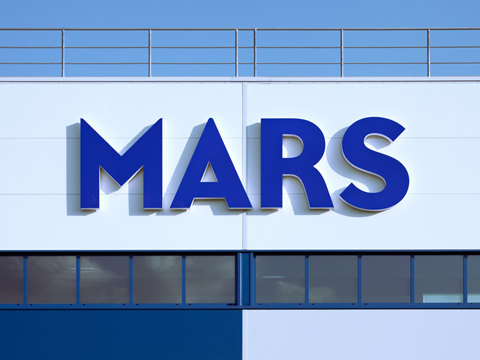
Mars has launched a $250 million Sustainability Investment Fund to drive innovation and growth in recyclable and compostable alternatives to flexible plastics, among other areas.
In line with its 2024 Mars Sustainable in a Generation Report, the company announces that its $250 million capital commitment will be divided across investment funds and direct investments; these are anticipated to further innovations and scientific developments and help overcome industrial challenges.
Areas of focus include ‘Next Generation Packaging’ – specifically focusing on ‘bio-benign’ replacements for flexible plastics, including recyclable and compostable materials.
The company also sets its sights on healthier and lower-emission alternatives to product ingredients, as well as technologies that reduce the emissions related to agricultural inputs.
Mars considers these funds a contribution to the three key pillars of its Sustainable in a Generation Plan: Healthy Planet, Thriving People, and Nourishing Wellbeing.
As of the report, it claims that 64.1% of its consumer-facing packaging is designed to be reusable, recyclable, or compostable; this marks a 3.1% increase from the previous year.
However, as it falls short of its original target to achieve 100% reusable, recyclable, or compostable packaging by 2025, Mars has emphasized how “the design and infrastructure changes needed are taking longer than we anticipated when we signed the Ellen MacArthur Foundation Global Commitments” – and that, despite “almost half” of its packaging portfolio having been redesigned in line with current and future recycling technologies, “addressing these fundamental issues cannot be done by businesses alone”.
The company went on to leave the U.S. Plastics Pact alongside Mondelēz, Nestlé, L’Oréal USA, and Walmart. While it remains a founder of the Flexible Packaging Initiative and an active stakeholder in CEFLEX, the revelation raised questions as to whether staying committed to currently unattainable sustainability targets should be general practice, or whether it would register as ‘greenwashing’.
In other news, the European Investment Bank has just provided PulPac with €20 million to scale its patented Dry Molded Fiber technology for bottles, coffee cup lids, pharmaceutical packaging, and more. The funds fall under the InvestEU programme, which is designed to drive the EU’s green transition by supporting innovations, industrial resilience, and sustainability-minded economic growth.
If you liked this story, you might also enjoy:
The ultimate guide to the Packaging and Packaging Waste Regulation in 2025
How are the top brands progressing on packaging sustainability?
Everything you need to know about global packaging sustainability regulation in 2025
The key to increasing the use of reusable packaging in supermarkets














No comments yet